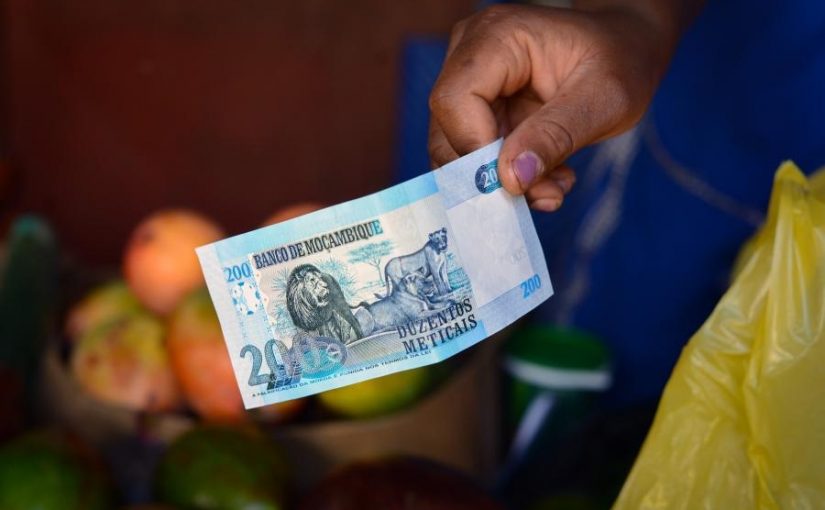Mozambique: GCRA records 13.7 billion meticais of “incongruous assets”
Mozambique: Average person earns €26 a month

FILE - "In average per capita terms, the data shows that monthly income stood at around 1,946 meticais (€26)," reads the final report of the 2019/20 Household Budget Survey, consulted today by Lusa. [File photo: Lusa]
Each Mozambican earns an average of €26 a month and is mainly self-employed in agriculture, according to the latest survey by the National Statistics Institute (INE).
“In average per capita terms, the data shows that monthly income stood at around 1,946 meticais (€26),” reads the final report of the 2019/20 Household Budget Survey, consulted today by Lusa.
“The administrative regions of Maputo City, Maputo Province and Tete showed the highest levels – the average per capita income doubles in Maputo – and the lowest were recorded in the provinces of Gaza, Cabo Delgado and Zambézia,” the document notes.
While in rural areas, 75% of income among the estimated population of around 30 million comes from self-employment, salaried work is predominant in urban areas, rising to 61%.
The report also notes that households are larger in some provinces, such as Sofala, Manica and Gaza, where households of five or more people weigh more in the distribution of income, and smaller in others, such as Maputo (city and province) and Tete, with households mainly of fewer than five people.
Nationwide, average monthly income per household was estimated at 8,916 meticais, or €119 per household.
Agriculture, forestry and fishing accounts for about 73% of the employment across all provinces, except for Maputo province and city. “More than 65% of the employed population carries out its economic activities in agriculture, forestry and fishing,” while in the capital, “the population is mainly engaged in trade and finance and other services”.
The self-employed represent around 71% of the total employed population, up from 64.0% in the 2014/15 survey.
The income analysed includes labour income, sales, other business, rentals, self-consumption (agricultural products, livestock, firewood, coal and others) and extraordinary income such as gaming or inheritance.
Despite difficulties in measuring the unemployment rate, it is estimated to have fallen from 20.7% in the 2014/15 report to 17.5% in 2019/20.
“Maputo province and city have the highest unemployment rates in the country, at 31.6% and 37.1% respectively,” while, at the other extreme, the lowest unemployment rate – 10.7% – is seen in Zambézia province.
Measuring unemployment “is very difficult in the socio-economic conditions of developing countries,” the report notes, taking into account the “greater intensity of economic activities of an informal nature and also because most people, even if they do not have a [formal] job, have to practice some activity for their subsistence”.












Leave a Reply
Be the First to Comment!
You must be logged in to post a comment.
You must be logged in to post a comment.